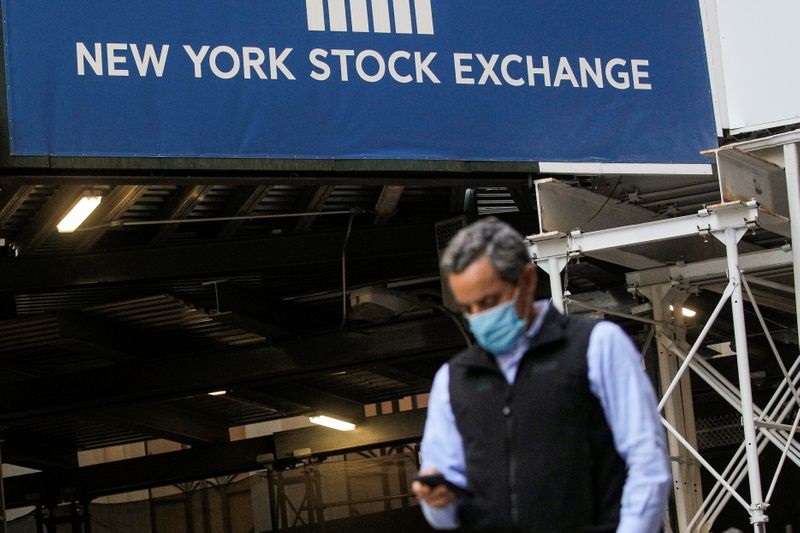By Geoffrey Smith
Investing.com -- The dollar falls again, sending everything from Bitcoin to copper futures higher as stimulus talks approach a deal. The EU and U.K. make progress toward a free trade agreement. U.S. States ratchet up the antitrust war against Big Tech and jobless claims heads a big day of data after Wednesday's disappointment with retail sales. Here's what you need to know in financial markets on Thursday, December 17th.
1. Dollar hits lowest since May 2018 on stimulus, Brexit talks
The Dollar Index fell to its lowest since May 2018, dropping below 90 as progress on a fiscal stimulus package and the promise of loose Federal Reserve policy for years to come encouraged moves into risk assets and alternative assets.
The biggest beneficiary of the move was again Bitcoin, which surged above $22,000, having broken through the $20k barrier only hours earlier.
Commodities were also big beneficiaries with Copper futures hitting $3.60 a pound for the first time in nearly eight years, while iron ore futures stayed just below the eight-year high they posted earlier in the week. Cotton futures hit their highest since April 2019.
The euro and sterling also hit their highest levels against the dollar since early 2018, helped by a steady drip of mini-agreements on mutual trading arrangements after December 31.
2. New suit ratchets up antitrust campaign vs Big Tech
The campaign to cut Big Tech down to size ratcheted up a notch as 10 U.S. states announced a fresh lawsuit against Google (NASDAQ:GOOG), accusing it of running an illegal digital-advertising monopoly in cahoots with Facebook (NASDAQ:FB). The two have enjoyed an effective duopoly in online advertising for much of the last decade.
The suit alleged that the two colluded to rig advertising auctions in a deal code-named after characters from Star Wars.
“Google is a trillion-dollar monopoly brazenly abusing its monopolistic power, going so far as to induce senior Facebook executives to agree to a contractual scheme that undermines the heart of [the] competitive process,” Texas Attorney General Ken Paxton, said in a statement. Paxton recently attracted public attention for leading a suit to void 20 million votes in the presidential election because of alleged irregularities.
3. Stocks set to open higher as stimulus talks grind forward
U.S. stock markets are set to open higher as negotiators in Washington and Europe grind toward agreement on a U.S. fiscal stimulus package and an EU-U.K. post-Brexit free trade agreement.
By 6:30 AM ET, Dow Jones Futures were up 142 points, or 0.5%, while S&P 500 Futures were up 0.6% and NASDAQ Futures were up 0.5%.
Stocks likely to be in focus later include Moderna (NASDAQ:MRNA), whose Covid-19 vaccine is set to receive a recommendation for emergency use authorization from a key panel of advisors to the Food and Drug Administration. In related news, Novavax (NASDAQ:NVAX) stock may also benefit from news that the EU has reached a preliminary deal to buy doses of its (as yet still experimental) vaccine.
Roku (NASDAQ:ROKU) stock may also be in focus after resolving a long-standing dispute with AT&T (NYSE:T) unit HBO Max, over carrying the latter's content on its streaming devices.
4. Jobless Claims lead a big day for economic data
After a disappointing 1.1% drop in retail sales in November, the market will be looking to the release of data on jobless claims, housing starts and building permits for any further signs of economic weakness.
All three sets of data are due for release at 8:30 AM ET, while regional business surveys from the Philadelphia and Kansas City Federal Reserve banks are due at 8:30 and 11 AM ET respectively.
Analysts expect initial jobless claims to have remained high at around 800,000, after surging to a three-month high of 853,000 last week.
5. Oil supported by EIA inventory draw
Crude oil prices also hit their highest level since March, with the weak dollar and U.S. government stockpile data helping them to shrug off fears about the near-term demand trajectory.
By 6:45 AM ET, U.S. crude futures were up 0.3% at $47.99 a barrel, while Brent futures, the global benchmark, were up 0.2% at $51.18 a barrel.
On Wednesday, the Energy Information Administration’s inventory data had contradicted those of the American Petroleum Institute, showing a drop of 3.1 million barrels that was even greater than the 1.5 million draw expected.
